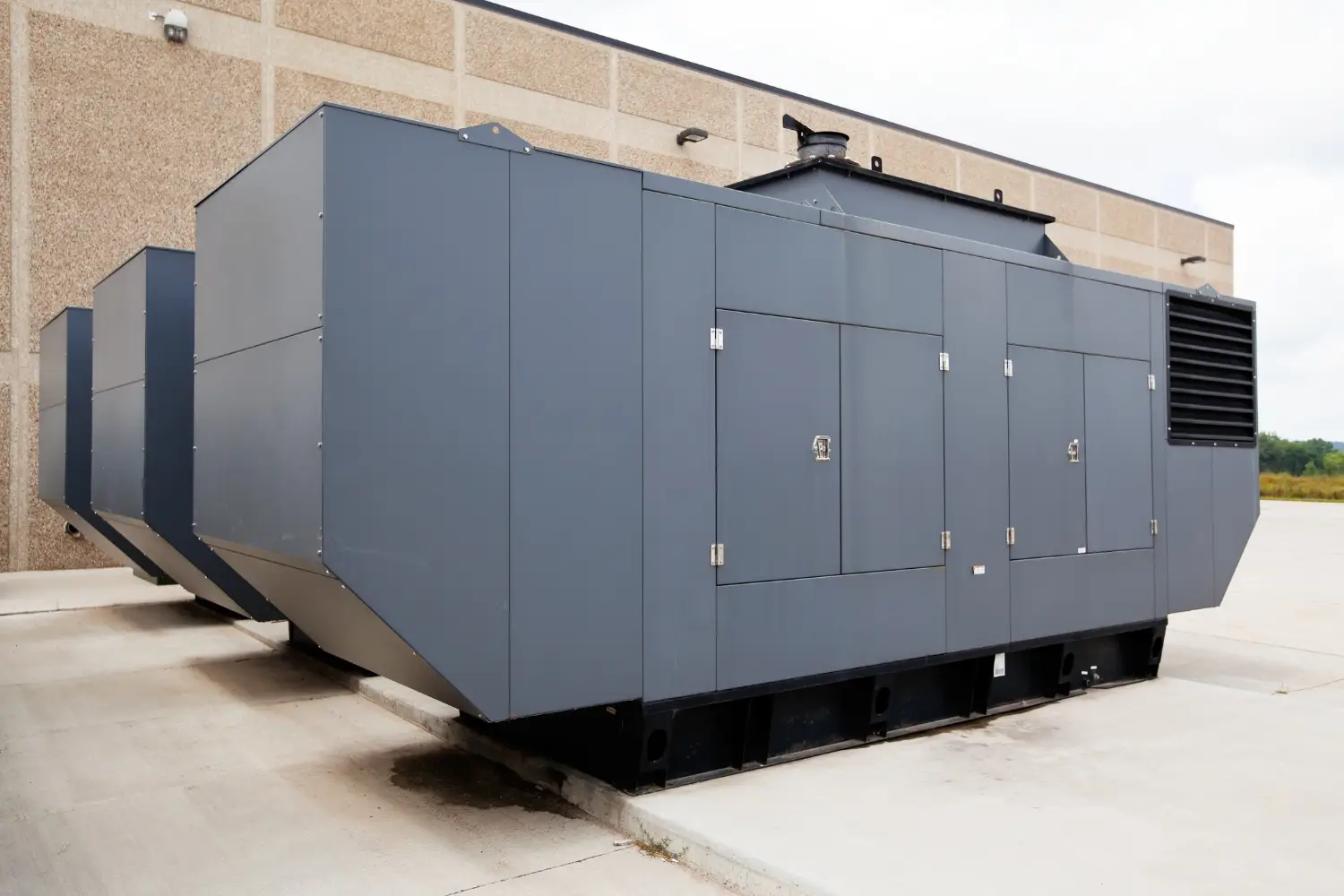Importance of Preventive Maintenance for Generators
Extending Equipment Lifespan
Maintaining a preventive maintenance program is essential to ensure the generator operates at peak efficiency and has a long service life. Lack of regular care can accelerate the wear of internal components such as pistons, valves, and injection systems, leading to premature failures and high replacement costs.
Reduction of Failures and Supply Interruptions
Systematic maintenance drastically reduces the likelihood of unexpected failures, which is critical for operations in hospitals, industries, and data centers. Regular inspections help identify wear, leaks, or damage before they compromise equipment functionality.
Compliance with Technical and Environmental Standards
Brazilian legislation, such as CONAMA Resolution 382/2006, requires combustion generators to comply with pollutant emission limits. Corrective and preventive maintenance are essential to ensure compliance and avoid fines or environmental sanctions.
Types of Generator Maintenance
Preventive Maintenance
Scheduled actions such as oil and filter changes, belt inspections, and load tests. The goal is to anticipate failures due to natural wear. Maintenance frequency varies according to generator usage (emergency, continuous, or prime).
Examples of Preventive Activities
Oil change every 200 operating hours (or as recommended by the manufacturer).
Replacement of fuel and air filters according to the maintenance schedule.
Inspection of hoses and cables for integrity.
Corrective Maintenance
Performed after faults or breakdowns are detected. It’s usually more expensive as it involves replacing critical parts and potential long downtimes. It should be considered as a last resort.
Examples of Corrective Maintenance
Replacement of damaged alternators.
Repair or replacement of starter motors.
Fixing leaks in cooling systems.
Predictive Maintenance
Uses advanced monitoring techniques such as vibration analysis, thermography, and gas measurement to predict failures based on performance trends. Recommended for high-criticality or intensive-use generators.
Examples of Predictive Techniques
Thermography to detect overheating in electrical connections.
Oil analysis to identify contamination or internal wear.
Remote IoT monitoring for automatic alert generation.
Key Components to Check During Maintenance
Generator Engine
As the system’s core, it requires special attention: oil level, filter condition, cooling system function, and spark plugs (gasoline) or injectors (diesel).
Alternator
Inspect for bearing wear, shaft alignment, and excitation efficiency. Perform insulation resistance tests.
Fuel System
Check tanks, pumps, and lines for contamination by water, fungi, or dirt. Clean tanks and replace filters regularly.
Cooling System
Check radiators, reservoirs, and hoses to prevent overheating. Replace coolant as specified.
Electrical System and Batteries
Dead or corroded batteries are common start-up failure causes. Maintenance includes voltage testing, load tests, and cable inspections.
Ideal Generator Maintenance Schedule
Weekly Maintenance
Check oil level.
Inspect fuel and coolant levels.
Perform cold start test (no load).
General inspection of hoses, belts, and electrical connections.
No-load test run.
Clean air filters.
Visual check for leaks and corrosion.
Monthly Maintenance
Load test with real simulation (load bank test).
Visual check for leaks and corrosion.
Update maintenance records.
Full equipment inspection.
Bimonthly Maintenance
Complete oil and filter change (when applicable).
Exhaust system inspection.
Detailed inspection of all internal and external components.
Firmware update of control modules (if applicable).
Best Practices for Generator Maintenance
Use Only Certified Parts and Lubricants
Low-quality parts or inappropriate lubricants compromise performance and may void warranties.
Keep Detailed Maintenance Records
A maintenance history helps future planning, increases resale value, and aids in troubleshooting recurring issues.
Train the Responsible Team
Operators and technicians should receive regular training and stay updated on new technologies and procedures.
Perform Periodic Visual Inspections
Simple visual checks can detect early signs of failures like corrosion, leaks, or abnormal noises.
Need help? Contact a specialized manufacturer like Geraforte, with over 16 years of experience in power generator groups. Our team of engineers and specialists is ready to assist you with technical support throughout Brazil.
Discover our products.





